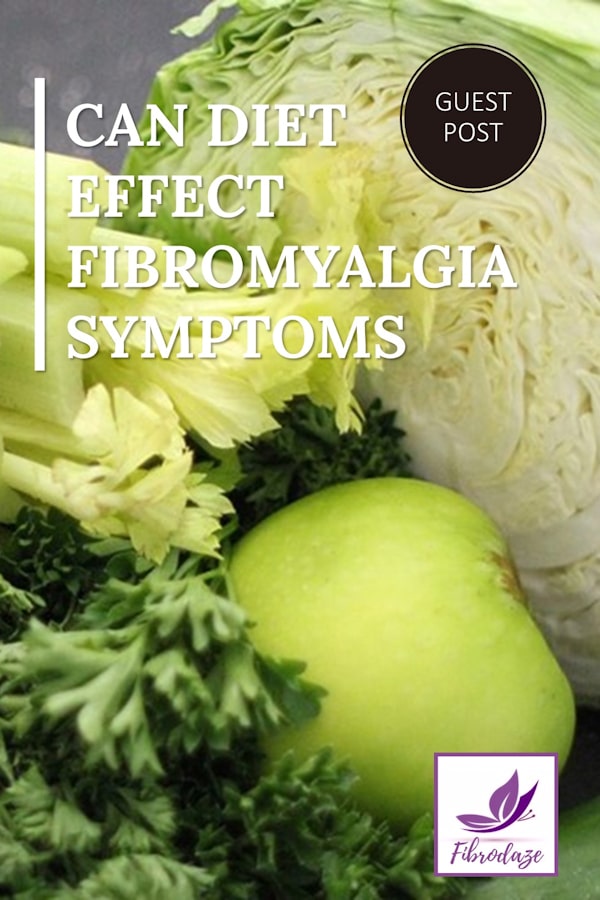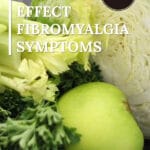Although there is little clinical research on how diet can affect fibromyalgia symptoms, many people find that the food they eat can impact how they feel. In this guest post, Gabriella Diesendorf discusses that while there are no specific diet rules for fibromyalgia, there are some foods that should be avoided.

Does your diet affect fibromyalgia symptoms?
By Gabriella Diesendorf
Fibromyalgia, a condition that millions of people, mostly women, suffer from in this day and age, is actually a set of different symptoms individual for everyone. This is precisely why this condition is so difficult to treat as well as diagnose with 100 percent certainty since symptoms that include fatigue and joint or muscle pain can be caused by other health issues, too.
Various symptoms of Fibromyalgia
Fibromyalgia is a very tricky condition due to its unfortunate showing symptoms that are too general on their own but with specific manifestation in different people. Symptoms can, therefore, vary a lot – from lack of energy, tiredness, and body pain to bloating, headaches, anxiousness, etc. It is of utmost importance to talk to someone who specializes in the treatment of this condition in order to find the best way to completely cure it or at least minimize the symptoms and their effect on a person’s quality of life.
Diet and Fibromyalgia
Even though this is not officially recognized as a definite way for treating Fibromyalgia, specially made diets for different needs of different patients have proved to be successful in relieving some of the symptoms of this condition. It is still not clear whether
Fibromyalgia or if proper food plan simply contributes to the overall well-being and health thus making the patient feel better. In general, gut health plays a big part in improving energy levels as well as bloating sensations and even headaches and other kinds of pain.
Moreover, the symptoms themselves might be caused by a separate health problem which effect can be significantly lessened with a
There are no rules
Still, whether or not meal planning is related directly to Fibromyalgia, it is obvious that diets specifically made to suit the needs of different patients show positive results. There are no general rules when it comes to what a person should be eating because it all depends on the patient’s health condition and metabolism and there is no one sure diet that will help with symptom relie. On the other hand, there are some foods that should be avoided when a person is experiencing some of the Fibromyalgia symptoms.
Foods that might be better to avoid:
- Aspartame is an artificial sweetener that is proved to worsen Fibromyalgia in patients. Basically, aspartame stimulates the pain receptors in nervous system even more.
- Food additives that include MSG and nitrates cause similar pain receptor sensitivity like aspartame. These additives can cause mild unpleasantness in healthy people, but people who suffer from Fibromyalgia are much more sensitive to pain.
- Sugar, fructose, and simple carbohydrates are not considered exclusive to treating Fibromyalgia but what can be said is the fact that cutting these from everyday meals will improve gut health and reduce the symptoms of secondary conditions such as yeast infection that also cause Fibromyalgia pain.
- Caffeine is already known as a double-edged sword. While it can boost the energy for a while it is also followed by a sedative-like effect and drop in energy levels. In patients with Fibromyalgia, this sedative effect is amplified.
- Cutting out yeast and gluten can help alleviate some of the Fibromyalgia symptoms even though these are linked to secondary conditions such as yeast infection and gluten intolerance.
- Dairy products can also cause problems in some Fibromyalgia patients while they would actually do good to others. Therefore, it is important to test this out by changing up the milk drinking habits.
- Other foods that need testing are all edible nightshade plants. In some patients, these would cause additional pain related to Fibromyalgia while others will not have any particular reaction apart from getting a lot of nutrients.
While it cannot be positively stated that balanced diet is definitely the reason for relieving Fibromyalgia symptoms, it is sure that healthy eating improves general health and reduce symptoms of some other conditions which all lead to better coping and response to treating Fibromyalgia as well.
What do you think? Does your diet affect your fibromyalgia symptoms?
Pin for Later







Been there, done that. With all of these separately and at once. For years at a time.
No difference in symptoms, as a matter of fact I got progressively worse.